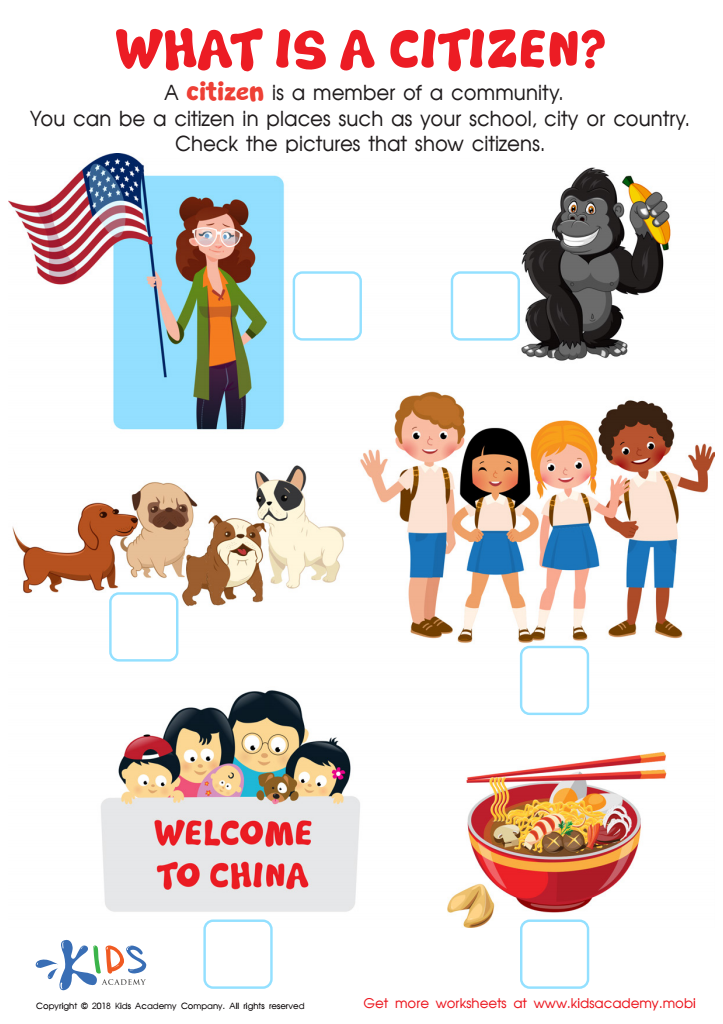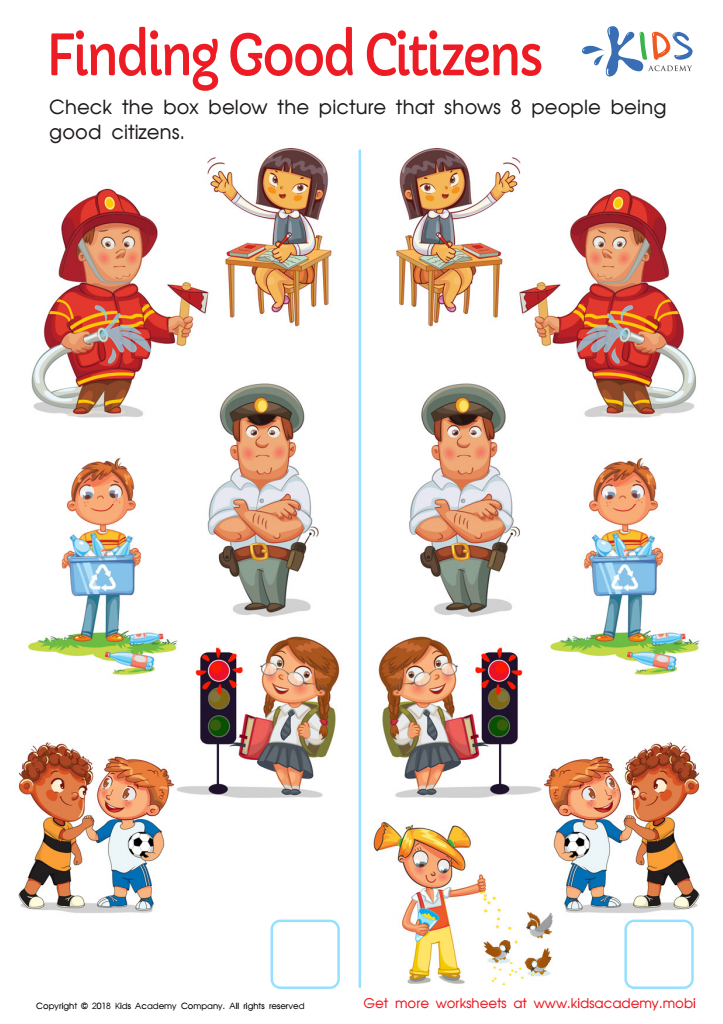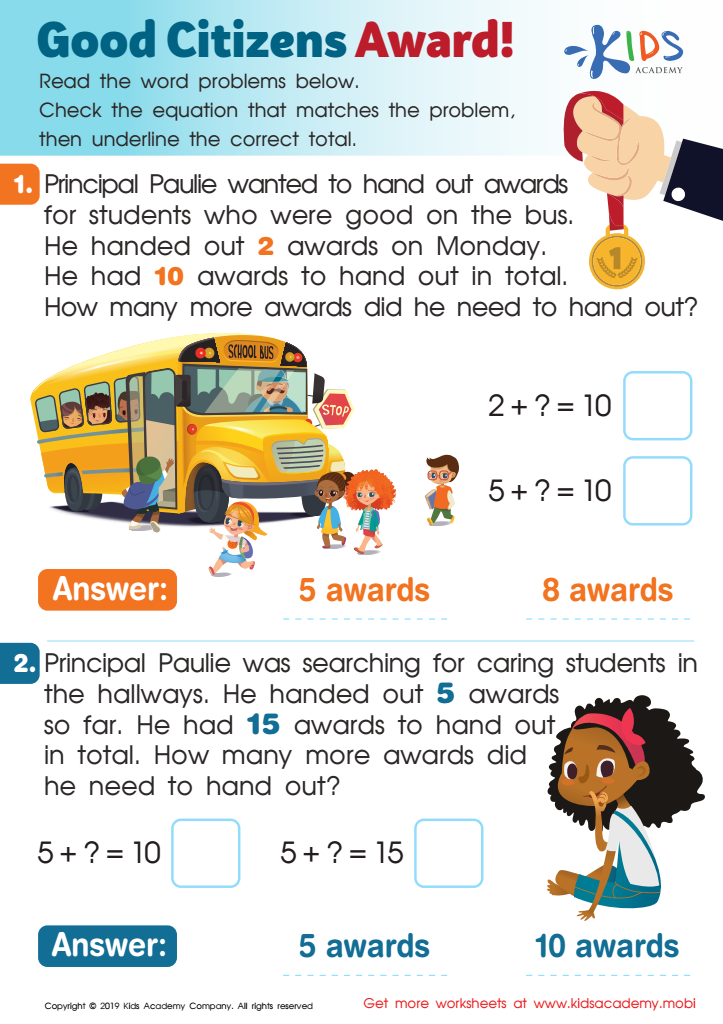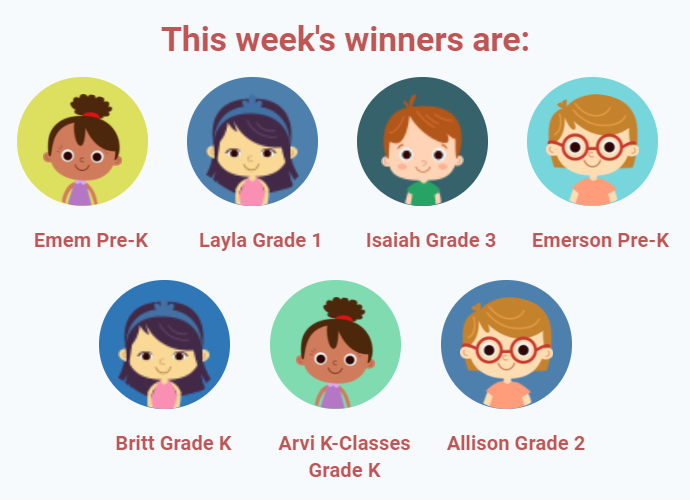Understanding citizenship Easy Worksheets for Ages 4-7
3 filtered results
-
From - To
Discover engaging and educational worksheets designed to help children ages 4-7 understand the basics of citizenship. At Kids Academy, we provide easy-to-use printables that introduce young learners to foundational concepts such as community roles, responsibilities, and the importance of good citizenship. Our materials create a fun and interactive learning experience, perfect for early grade students. Through colorful activities, kids will explore topics like caring for the environment, following rules, and working together. Foster essential social skills and civic understanding in an age-appropriate way with our Understanding Citizenship worksheets. Visit Kids Academy to download and get started today!


What is a Citizen? Worksheet


Finding Good Citizens Worksheet


Good Citizens Award! Worksheet
Understanding citizenship from an early age lays the foundation for developing responsible, involved, and compassionate members of society. Introducing these concepts to children ages 4-7 is crucial for several reasons. First, young children are naturally curious and absorb information quickly, making this an ideal time to instill a sense of community and responsibility. By teaching them about fairness, kindness, and cooperation, we help cultivate empathy and social skills essential for their constructive interactions with others.
Moreover, understanding basic citizenship principles helps children grasp the importance of rules, respect for others, and why contributing to group activities, like sharing and taking turns, is valuable. Teachers and parents who nurture these ideas create an environment where positive behavior is encouraged and reinforced both at home and in school.
Introducing these concepts early also sets the stage for understanding more complex social structures as they grow, including governance, rights, and duties. Helping young children comprehend their role and potential impact within their communities empowers them to become pro-active and engaged citizens. By prioritizing citizenship education, we are not only fostering essential character traits but also laying the groundwork for a more harmonious and cooperative society in the future.
 Assign to My Students
Assign to My Students
















